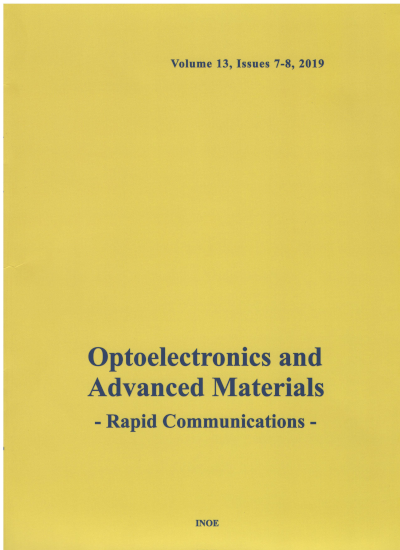Cubic–quartic optical soliton perturbation with Chen– Lee–Liu equation by sine-Gordon equation approach
YAKUP YILDIRIM1,
ANJAN BISWAS2,3,4,5,6,*
,
HASHIM M. ALSHEHRI3,
MILIVOJ R. BELIC7
Affiliation
- Department of Computer Engineering, Biruni University, 34010 Istanbul, Turkey
- Department of Mathematics and Physics, Grambling State University, Grambling, LA—71245, USA
- Mathematical Modeling and Applied Computation (MMAC) Research Group, Department of Mathematics, King Abdulaziz University, Jeddah–21589, Saudi Arabia
- Department of Applied Sciences, Cross-Border Faculty, Dunarea de Jos University of Galati, 111 Domneasca Street, Galati-800201, Romania
- Department of Mathematics and Applied Mathematics, Sefako Makgatho Health Sciences University, Medunsa–0204, Pretoria, South Africa
- Department of Applied Mathematics, National Research Nuclear University, 31 Kashirskoe Hwy, Moscow–115409, Russian Federation
- Institute of Physics Belgrade, Pregrevica 118, 11080 Zemun, Serbia
Abstract
This paper addresses a modified version of the regular known Chen–Lee–Liu equation where the familiar chromatic
dispersion is replaced by a collective count of third–order dispersion as well as fourth–order dispersion effects to
compensate the low count of chromatic dispersion. The model is studied for scalar case as well as birefringent fibers for the
first time. Hamiltonian type perturbation terms are considered with maximum intensity. Bright, dark and singular solitons with
the newly formulated model are extracted by the aid of sine–Gordon equation approach for the first time in the field of
nonlinear optics.
Keywords
Cubic-quartic, Perturbation, Chen–Lee–Liu equation, Optical solitons.
Citation
YAKUP YILDIRIM, ANJAN BISWAS, HASHIM M. ALSHEHRI, MILIVOJ R. BELIC, Cubic–quartic optical soliton perturbation with Chen– Lee–Liu equation by sine-Gordon equation approach, Optoelectronics and Advanced Materials - Rapid Communications, 16, 7-8, July-August 2022, pp.342-347 (2022).
Submitted at: Jan. 20, 2022
Accepted at: Aug. 10, 2022
